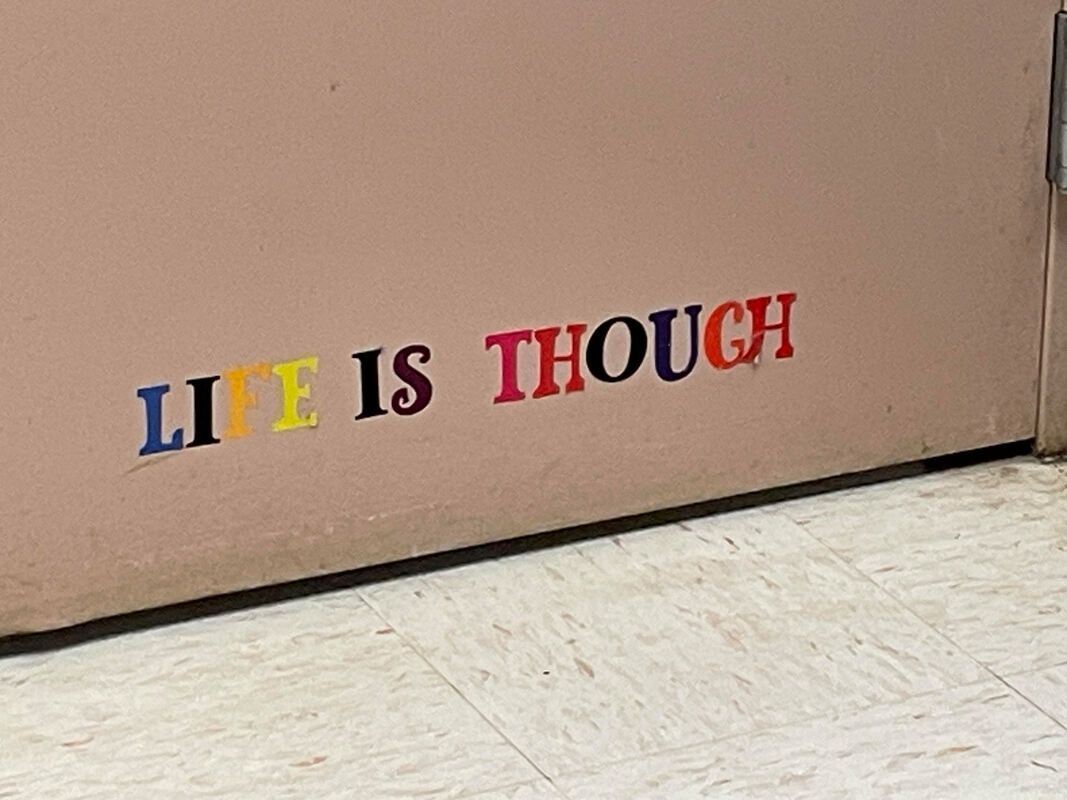
The truth is that a class will respect you more - and appreciate you more - if you maintain control and organization. They don't like the chaos of an unruly class any more than you do. Not only that, but your relationships with individual students will blossom in the process. You can maintain a positive relationship by adding some expectations to your daily activity.
- Demand eye contact. Yes, demand is the correct word. It will take explicit practice. You should not - and cannot - expect students to keep their eyes on the speaker without teaching them what it looks like and how it is done. Teach them and practice with them. Have students track conversations with their eyes, whipping their little heads around from speaker to speaker like they're watching a tennis match. I want to feel the wind of their collective pivoting. Of course, eye contact is a part of active listening, in which they listen to learn and not listen to respond. It includes that all-too-important skill of staying quiet until it is appropriate to speak. All of this is best taught in the beginning of the school year, but I assure you, it can be taught anew at any time. And don't think it will happen when you're being observed if you don't demand it all the time.
- Do not tolerate backtalk. My former students might tell you that this is my number one pet peeve concerning kids. Most teachers don't even recognize backtalk most of the time. Backtalk includes body language - gestures, sighing, crossing the arms, rolling the eyes, etc. Sometimes it manifests as talking without being asked a question - especially in conflicts on the playground or in the cafeteria. Typically, two kids have a fight. They both approach the teacher for mediation. The teacher asks one for the story, and the other answers, not waiting his turn. In another case, it might start with, But I..., or I was just... That's not something the teacher asked for, and it is backtalk. Teach your students to respect your mediation process. You cannot listen to two voices at the same time, and someone who interrupts or dominates is usually not the one the teacher will believe. Don't let them do it: call them on it every time.
- Manners matter. You won't find it in the curriculum, but etiquette (an old-fashioned word for manners) is invaluable - and again, it must be explicitly taught. They will not get it if you don't teach them through the steps. You can find lots of entries on this website about firm handshakes with eye contact. There are steps to getting that right. I came late to this game in my career, but once I adopted a policy of giving my students employable skills (Some call them soft skills.), my classroom completely changed. In fact, we changed the culture of our entire 500-600-student elementary school. Visitors noticed. Not only that, but I started teaching students to respond with Yes, sir and No ma'am when addressing adults. I expected them to let others go first. I expected them to help one another. Of course, I expected to hear Thank you, Please, Excuse me, and You're welcome. I wanted to hear those words, spoken appropriately, often during the course of our school day. All of this radiated beyond the school walls and academic hours, too: Parents and community members were impressed and appreciative. People quickly got to know which students were Hoggatteers, and students were proud of themselves. Their posture improved, they were more confident, and they were more intentional in their efforts to learn from mistakes and persevere in difficulties.
Dear Student Teacher, you can achieve these things in the first days of teaching, in the first year of your career. Just as your students need to practice, it's going to take your own consistent attention to details to get this right. Trust me, though, you're going to love the results.
Takeaways from Observing Student Teachers I
Takeaways from Observing Student Teachers II
Takeaways from Observing Student Teachers III


























































